NHS70: How artists are taking the pulse of the health service
From a charity single to an art exhibition, to a wealth of shows at the Edinburgh Fringe, the NHS is getting its own birthday check up
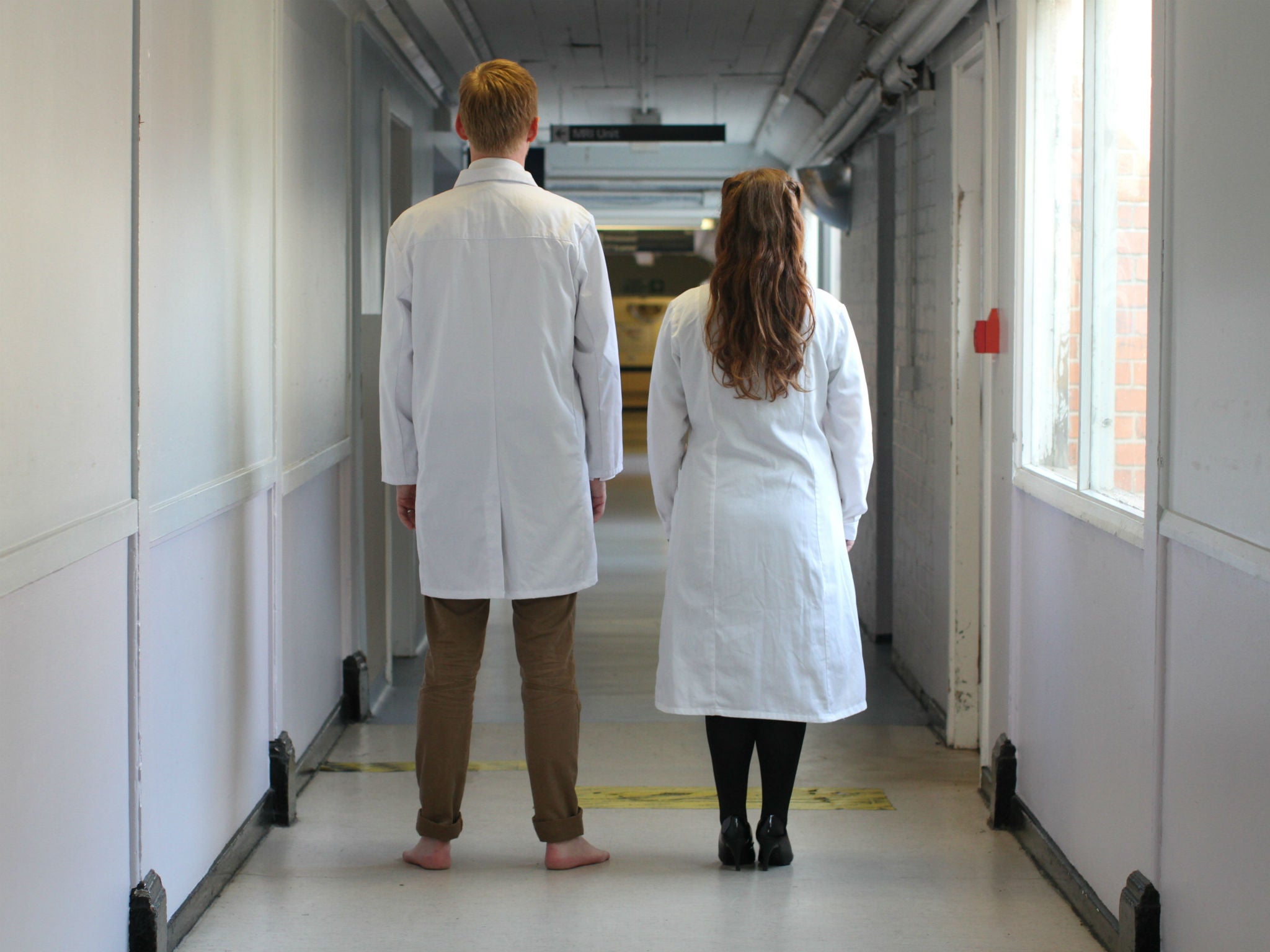
Your support helps us to tell the story
From reproductive rights to climate change to Big Tech, The Independent is on the ground when the story is developing. Whether it's investigating the financials of Elon Musk's pro-Trump PAC or producing our latest documentary, 'The A Word', which shines a light on the American women fighting for reproductive rights, we know how important it is to parse out the facts from the messaging.
At such a critical moment in US history, we need reporters on the ground. Your donation allows us to keep sending journalists to speak to both sides of the story.
The Independent is trusted by Americans across the entire political spectrum. And unlike many other quality news outlets, we choose not to lock Americans out of our reporting and analysis with paywalls. We believe quality journalism should be available to everyone, paid for by those who can afford it.
Your support makes all the difference.There’s often a moment for someone facing a terminal diagnosis when the fight goes out of them. That’s the stage that the NHS itself has reached, according to paediatric doctor Katie Rogerson.
“People are feeling exhausted in the health service. They’re miserable, they’re handing their notice in. The resilience is wearing thin.”
Years of underfunded services, overstretched staff and stagnant pay have put unendurable strains on the NHS, and frontline morale is low. Add to that the media’s pillorying of junior doctors, and an uncertain future awaits.
Doctors today are being overwhelmed, overworked and possibly overlooked. In worst case scenarios they also take their own lives
So the 70th anniversary of the National Health Service couldn’t have come at a better necessary time. Across the country, and in many different ways, people are celebrating Aneurin Bevan’s extraordinary creation. And Britain’s cultural institutions, big and small, grand and fringe, are lending their voices.
From a multi-art form festival embedded across Wales, to a pop single featuring Engelbert Humperdinck, Petula Clark and more than 6,000 NHS workers, from a BBC TV season to an exhibition of prints by artists including Jeremy Deller and Mona Hatoum, plus a wealth of shows at this year’s Edinburgh Fringe, the institution born out of a miners’ aid system in Tredegar is facing its own check up. But this time, it’s artists who are taking the pulse.
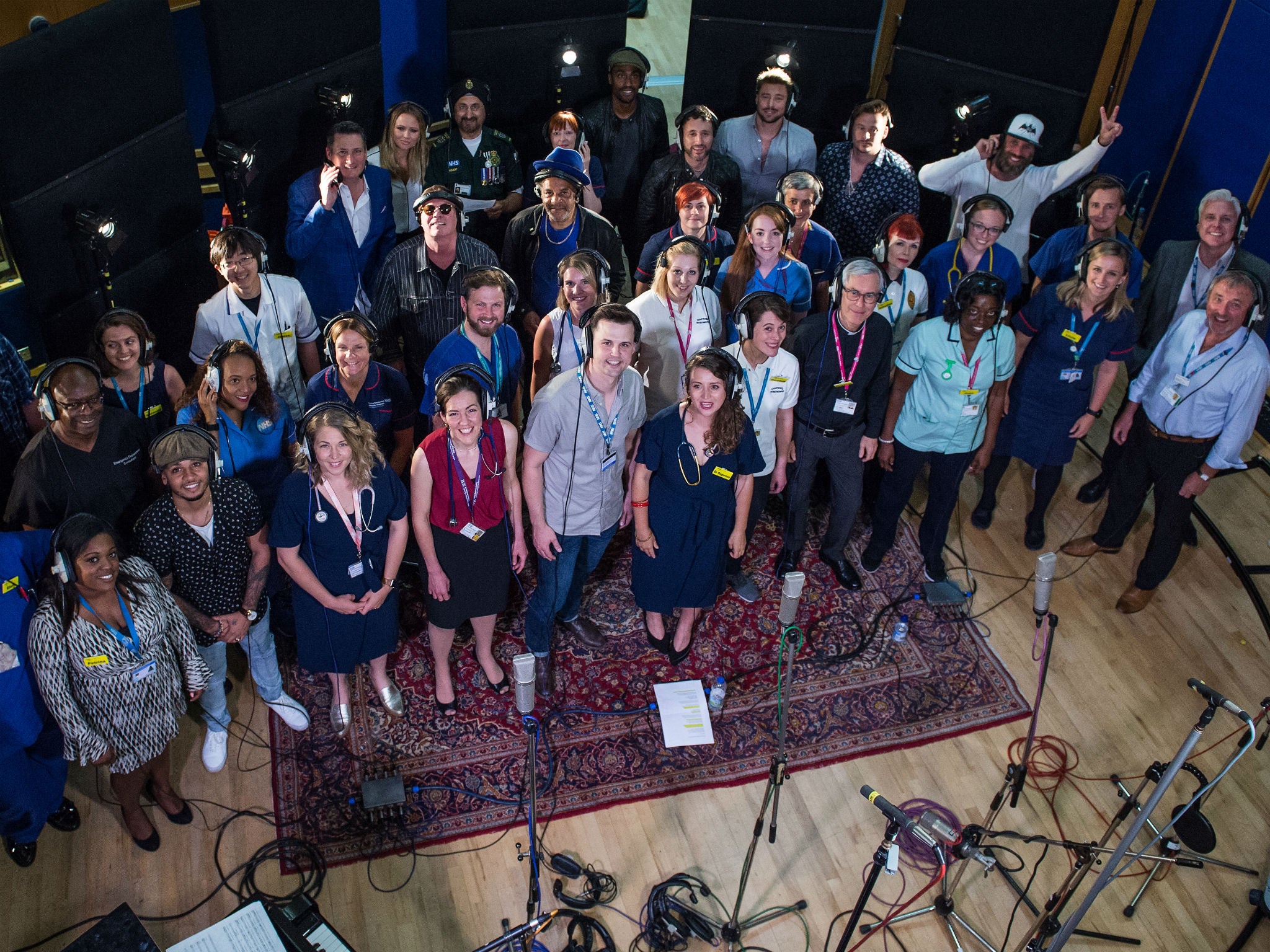
Rogerson was the driving force behind 2015’s Christmas number one, “A Bridge Over You”: a mashup of “Bridge Over Troubled Water” and Coldplay’s “Fix You”, sung by the Lewisham and Greenwich NHS Choir.
Support from Justin Bieber helped it reach the top spot, and Rogerson and her team knew they wanted to follow it up with a celebration of NHS70.
“Sometimes being a doctor is the best job in the world,” she explains, “but when you’re staying late every day, when you’re working through your lunch, when you’re not seeing your family, it’s hard to keep hold of those crystal moments.
“As a paediatric doctor, we’re desperate for some light, a break from years of underfunding, from years of not having Christmas.”
She and the choir turned to music, once again, for that moment of light. With the help of Sara Cox, Beverley Knight, Squeeze and many other famous names, the choir set about recruiting thousands of NHS workers to sing along to The Beatles’ “With A Little Help From My Friends”.
“Music is really important,” says Rogerson. Singing as part of a group, making music offers a joyful, uplifting feeling – or, as the doctor puts it, “that sensation in your thoracic cavity”.
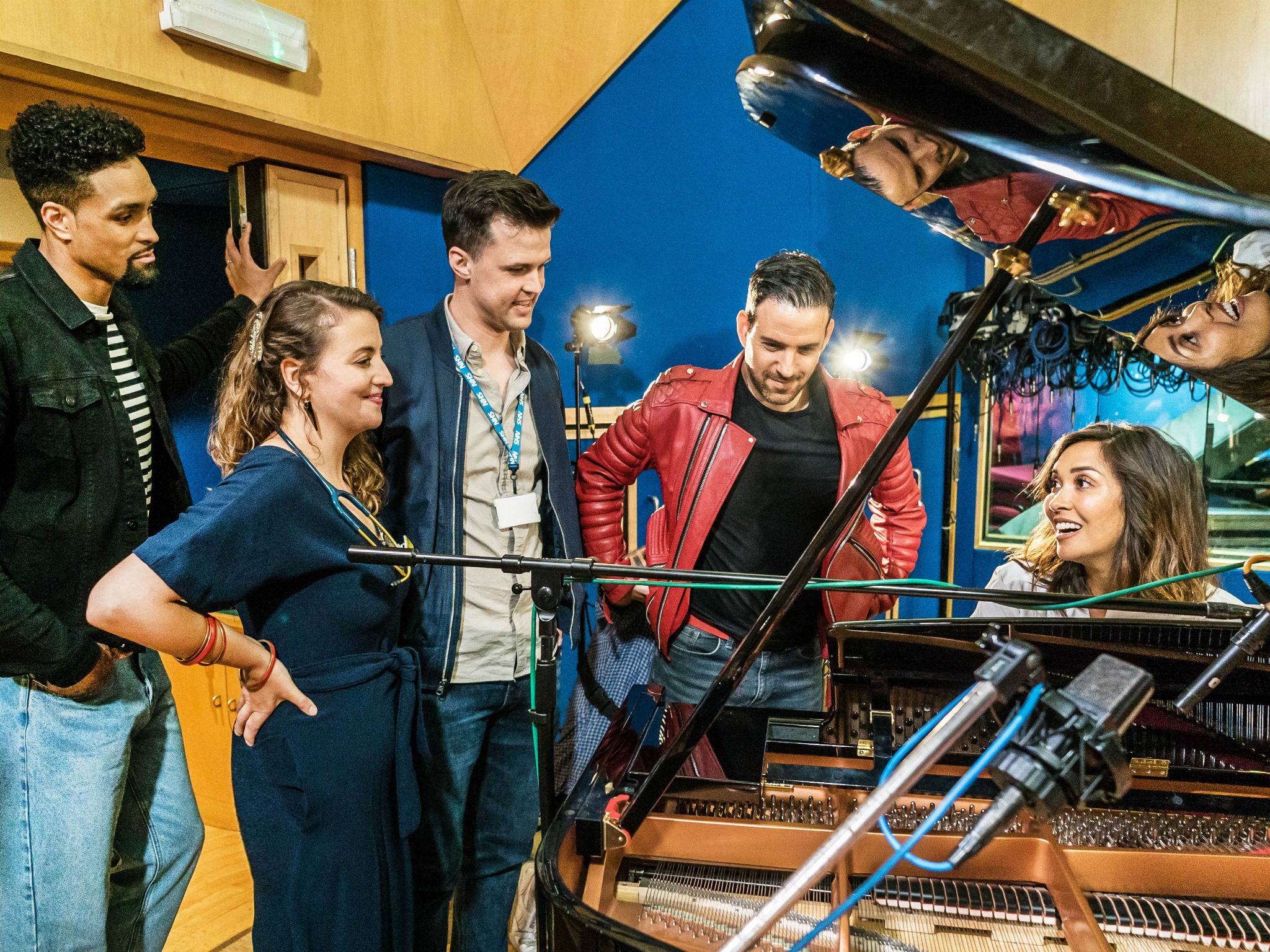
Adam Kay is also noticing something of a nadir in NHS morale. His account of his time working there, This is Going to Hurt: Secret Diaries of a Junior Doctor, started as a live show, then became a phenomenally successful book; now a TV adaptation is in the works.
Kay, now a writer and comedian, is taking the live show back to Edinburgh this August – and he’s worried about how quickly things have changed.
“When I left medicine, I was a glitch in the matrix. No one leaves medicine. I was the first in my cohort of hundreds of doctors to have left.
“Now I can’t look on Facebook without brilliant doctors – doctors who’d rescheduled their own stag dos for work – leaving. Someone is becoming a fireman. Imagine doing a job where being a fireman is the relaxing alternative.”
By publishing his diaries and performing on stage, Kay hoped to show that doctors are just humans, like the rest of us.
“A patient said to me, ‘It’s funny, you don’t think of your doctor getting sick.’ This is the person telling you what your MRI brain scan shows. You don’t want to think of them as fallible.”
But, of course, doctors are as human as their patients. In 1982, Dr John Sassall, a GP working in the Forest of Dean, took his own life. Fifteen years earlier he had been the subject of a book by renowned art critic and novelist John Berger, A Fortunate Man.
The book studied Sassall’s practice and his deep level of care for his patients, who were spread over the Gloucestershire countryside, and is still used as a model of good practice among doctors today. Now, it’s being adapted as a theatrical lecture by theatre-maker Michael Pinchbeck for this year’s Edinburgh Fringe.
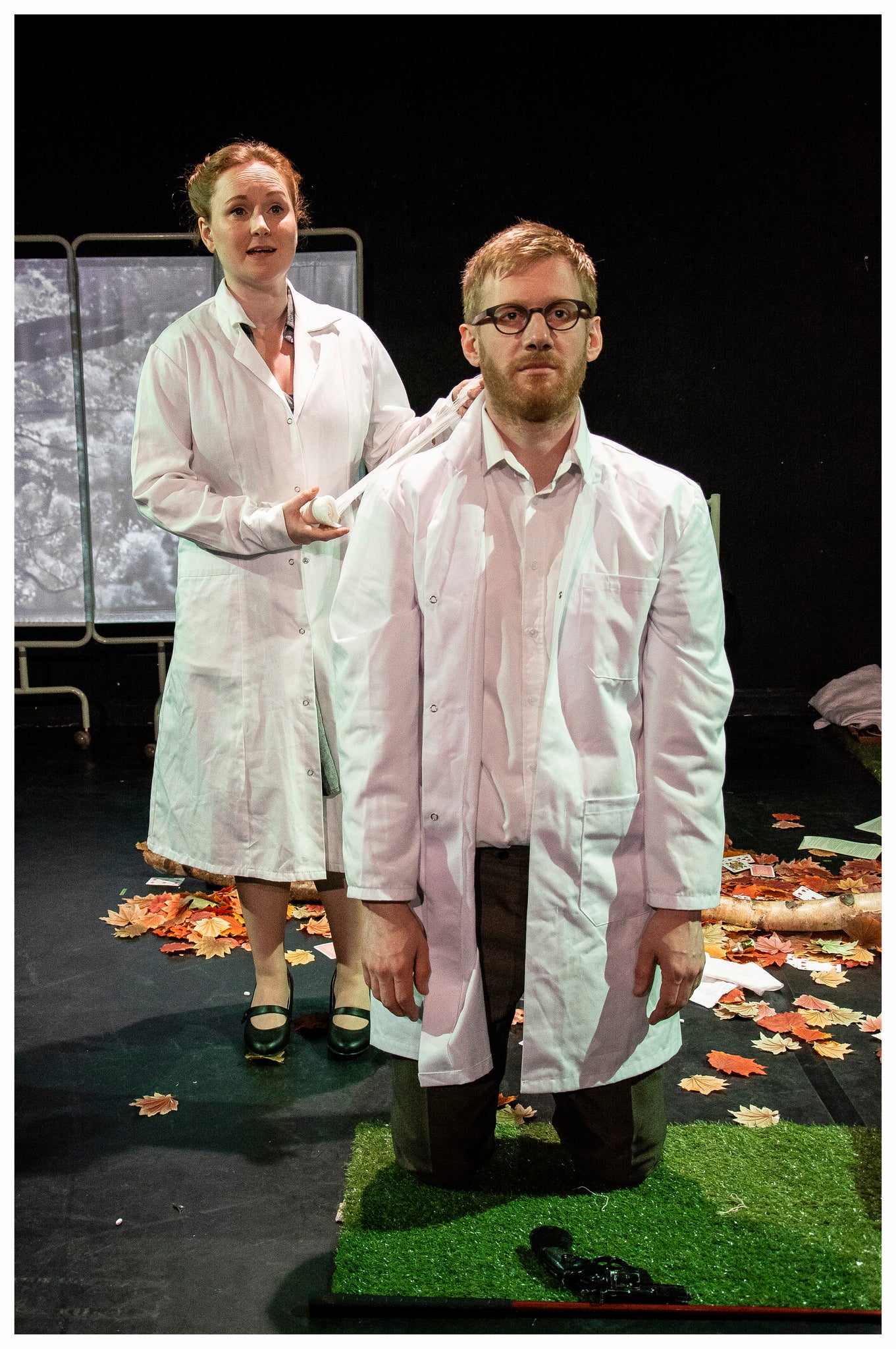
He is combining the text with testimony from current doctors because, like Kay, Pinchbeck thinks it’s important to ask who cares for the carer.
“They need mental health support too. Doctors today are being overwhelmed, overworked and possibly overlooked. In worst case scenarios they also take their own lives.”
While the show doesn’t hammer home the NHS crisis, the clues are there: projected pictures of desks inundated with paperwork, piles of mugs that no one’s had the time to wash up, testimony from doctors about seeing 36 patients a day, plus admin in the evening.
“Sassall had patients in the hundreds and nowadays they have them in the thousands,” Pinchbeck notes. “He knew that having the time to talk to people is part of the cure. Doctors nowadays are so driven to meet targets rather than meet patients.”
That dehumanising trend in the doctor-patient relationship is what has driven theatremaker Gary McNair’s latest Edinburgh Fringe show, After the Cuts.
Set 25 years in the future, the play follows to an extreme conclusion the direction that McNair has already noticed the NHS starting to take.
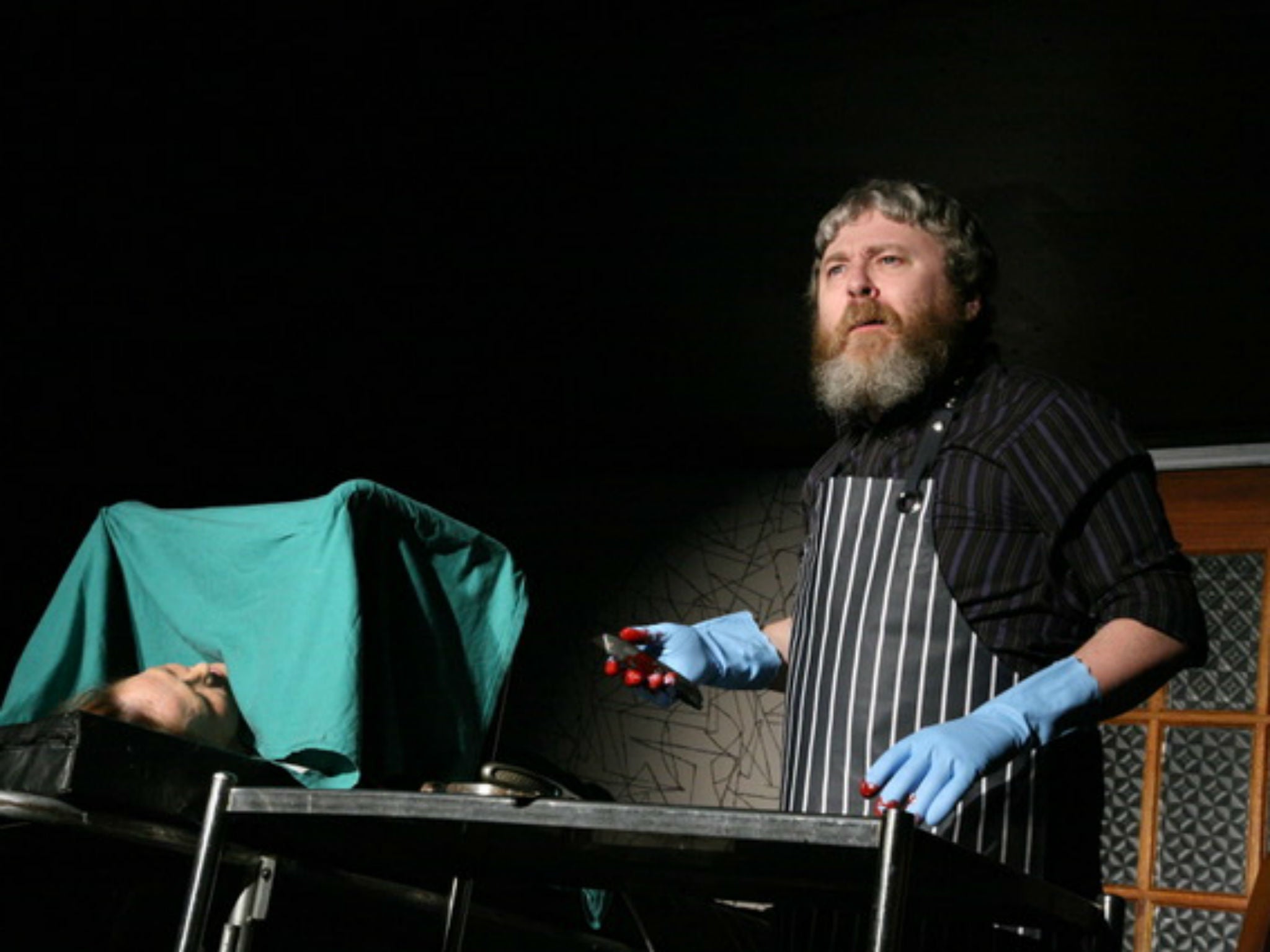
In the play, with the health service no longer free at the point of need, an elderly man decides to operate on his wife.
“The basic change is that someone is not worth an operation; someone’s life is not worth saving. That’s something we can’t come back from as a society,” he suggests.
What worries McNair is that, when he wrote the play three years ago, it felt far more dystopian. Now it is a plausible reality.
“I’m terrified that it’s being accepted that the NHS is going to be awful,” he says. “The play is reflecting one of the founding principles of the NHS in being about humanity. And that is what is being eroded.”
The humanity of the NHS is also the cornerstone of National Theatre Wales’s month-long celebration of the NHS70 anniversary, focusing on seven works that take place across the seven health boards in Wales.
In programming the festival, NTW’s artistic director Kully Thiarai wanted to show how the notion of care and kindness is still deeply embedded in the institution.
“Despite all the pressures on it, the passion of the doctors, the surgeons, the volunteers, the people who run the cafes and tearooms, tend the gardens, walk miles and miles as porters is incredible.”
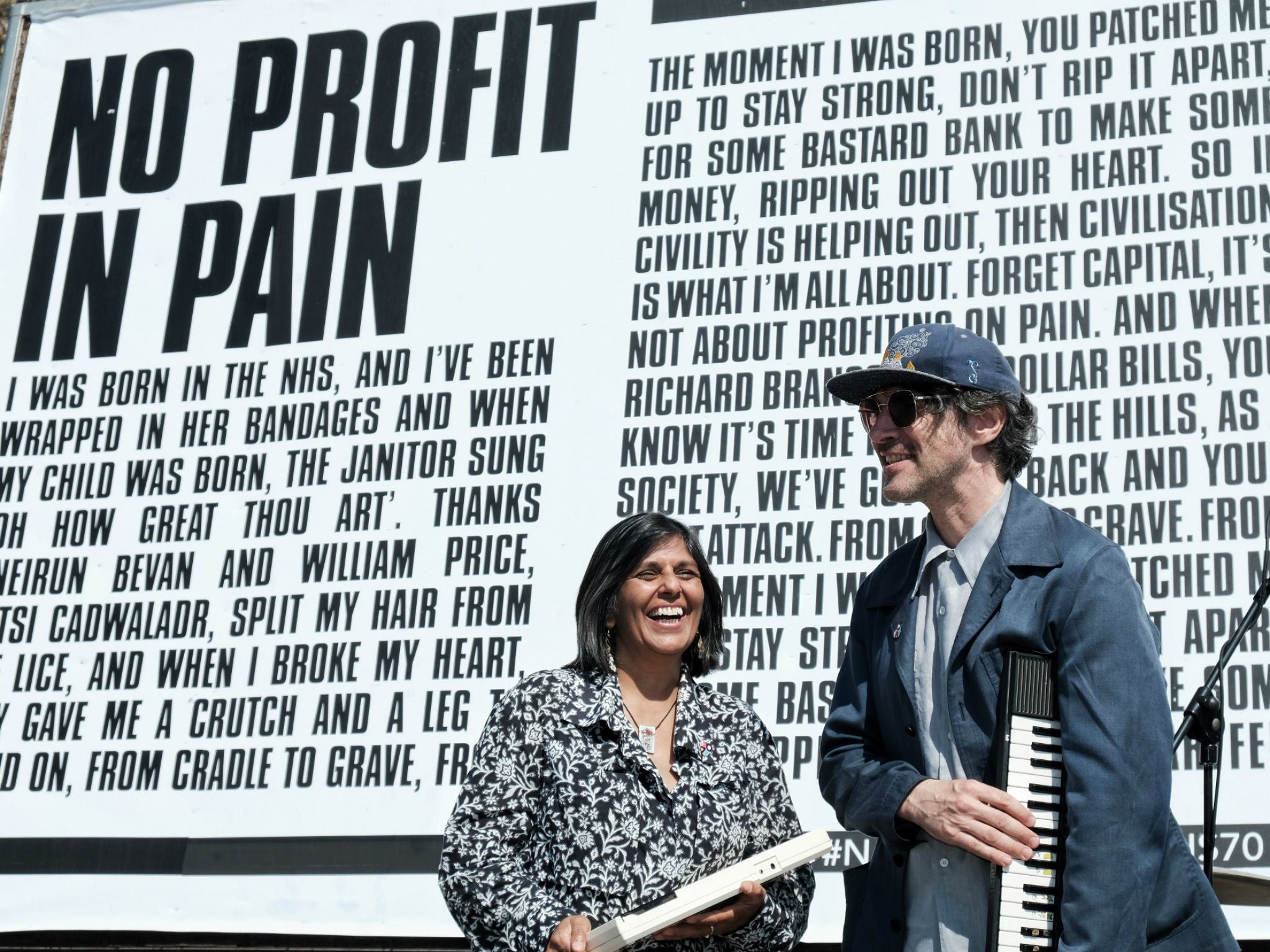
Unlike McNair, Thiarai believes that the founding values are still there. 1948 was a time of post-war austerity, she explains, but out of that came the NHS. “For us it’s about capturing that spirit and recognising when we work together we can make something amazing.”
What these artists show is how art can dig into the quiet corners of the world and it can care, in the same way that doctors, nurses, clinicians, care. In the same way that canteen staff, cleaners, volunteers all care – for the principle, yes, but also for the individuals passing through the hospital doors every day.
Art is about empathy in the same way the NHS is. Look at NTW’s Love Letters to the NHS, a series of plays whose characters range from a hill farmer in the Elan Valley to a hospital radio DJ in Wrexham. It’s a gesture, making the point that everyone’s life matters. Telling these stories affirms the value of everyone’s life, no matter background or income.
That may sound like a romantic notion, but art is romantic, and so is the whole vision on which the NHS is based: free healthcare at the point of need. Which is why such deep-rooted anxieties are riven throughout these works of art.
Those anxieties usually come down to a deep and powerful discomfort at the thought of putting a price on a human life. From talking to practitioners for his show, Pinchbeck reckons that “the conversation about the NHS has become monetised”; Rogerson is “suddenly aware of cost”; while McNair’s play lays out an alternative vision where money is valued above all else.
“Look at America,” says Kay. “It’s like the cliché: they scan your Visa card before they even ask your name. I cut my finger on a piece of glass, and as they were working out whether to glue it or put a stitch in, I was thinking: ‘Please don’t put a stitch in because I don’t know what my credit limit is.’
”That’s the ghost of Christmas future unless we keep an eye on it.”
“I’m so proud to have worked in the NHS, and I miss it desperately,” Kay adds. “I miss driving home from work, splattered slightly in blood, the window down and feeling proud you’ve done a good thing.
“I miss being part of the greatest institution the country has.”
‘A Little Help From My Friends’ is available now
‘This Is Going To Hurt: Secret Diaries of a Junior Doctor’ is at Edinburgh International Conference Centre on 14 and 17 August. The book is published by Picador (adamkay.co.uk)
‘A Fortunate Man’ is at Summerhall, Edinburgh, 1 to 26 August (newperspectives.co.uk)
‘After the Cuts’ is at Summerhall, Edinburgh, 1 to 26 August (rawmaterialarts.com)
NHS70: A Festival runs across Wales throughout July (nationaltheatrewales.org)
Join our commenting forum
Join thought-provoking conversations, follow other Independent readers and see their replies
Comments